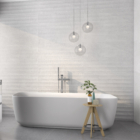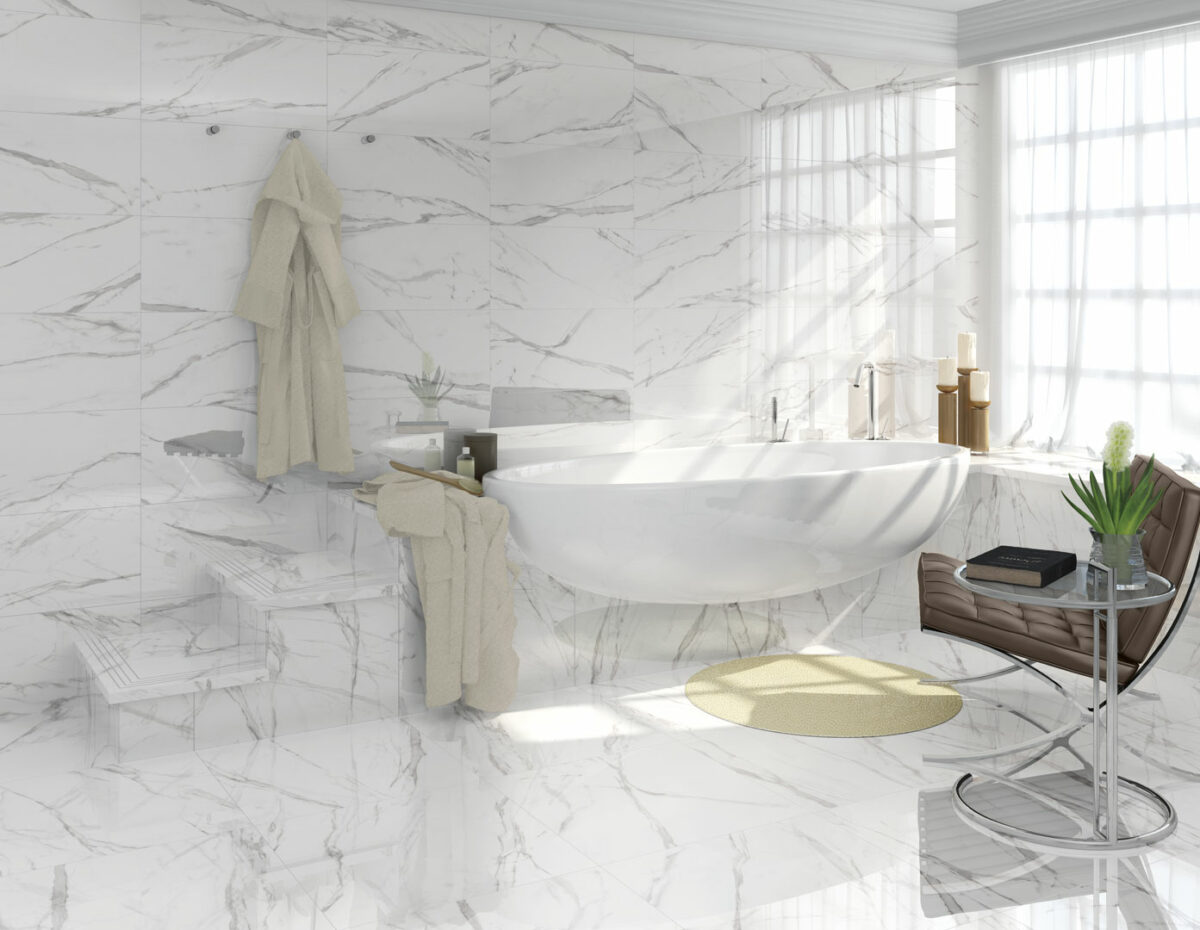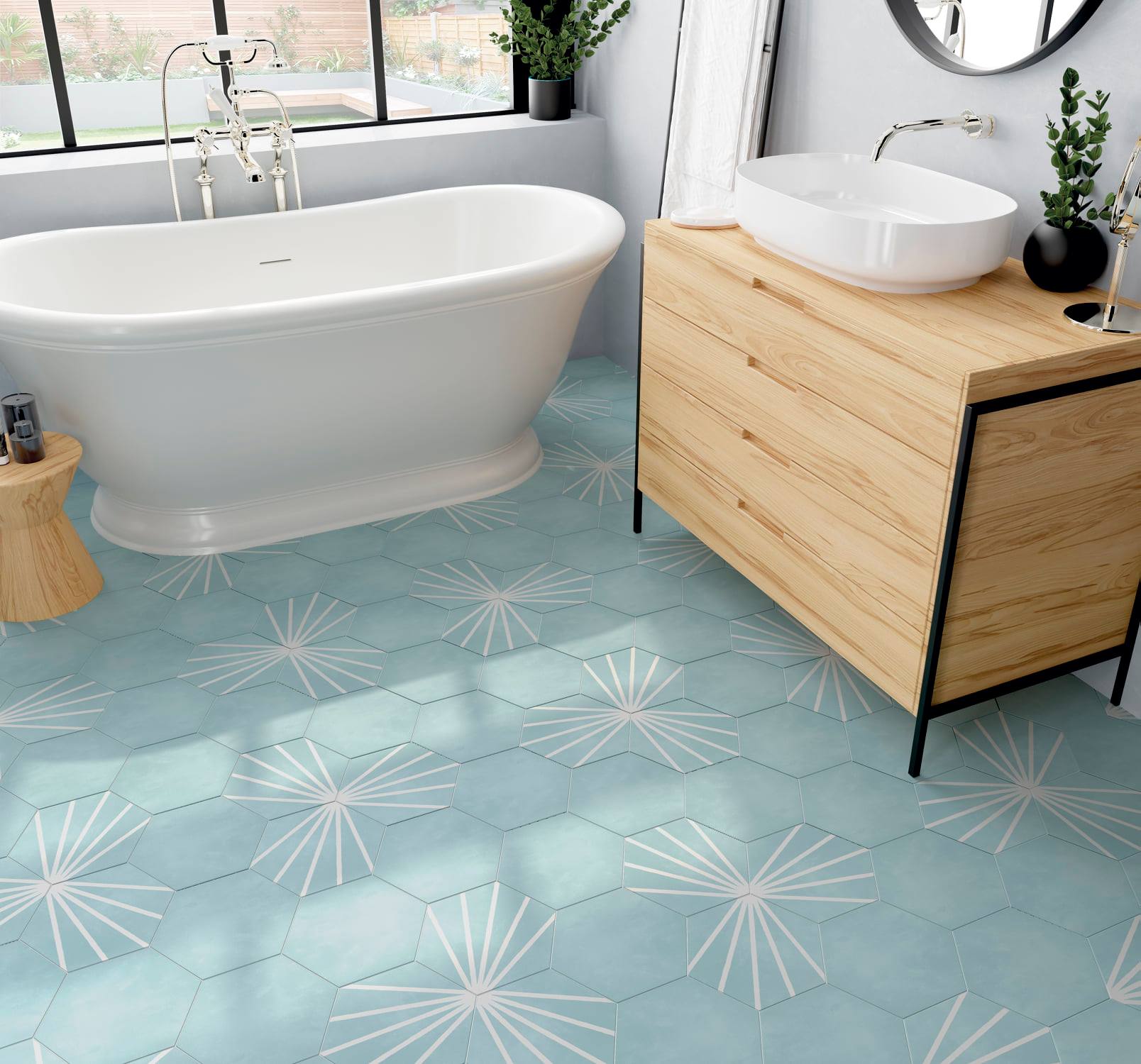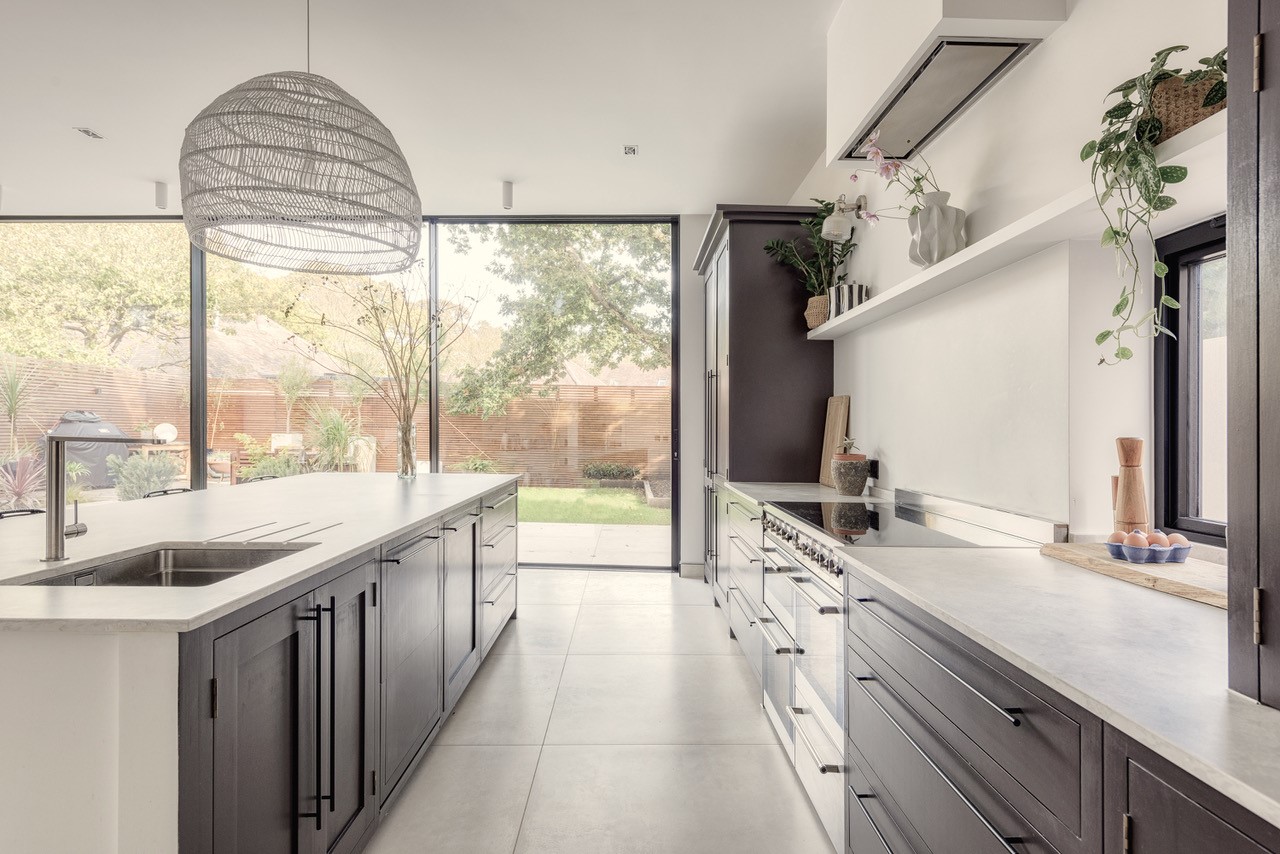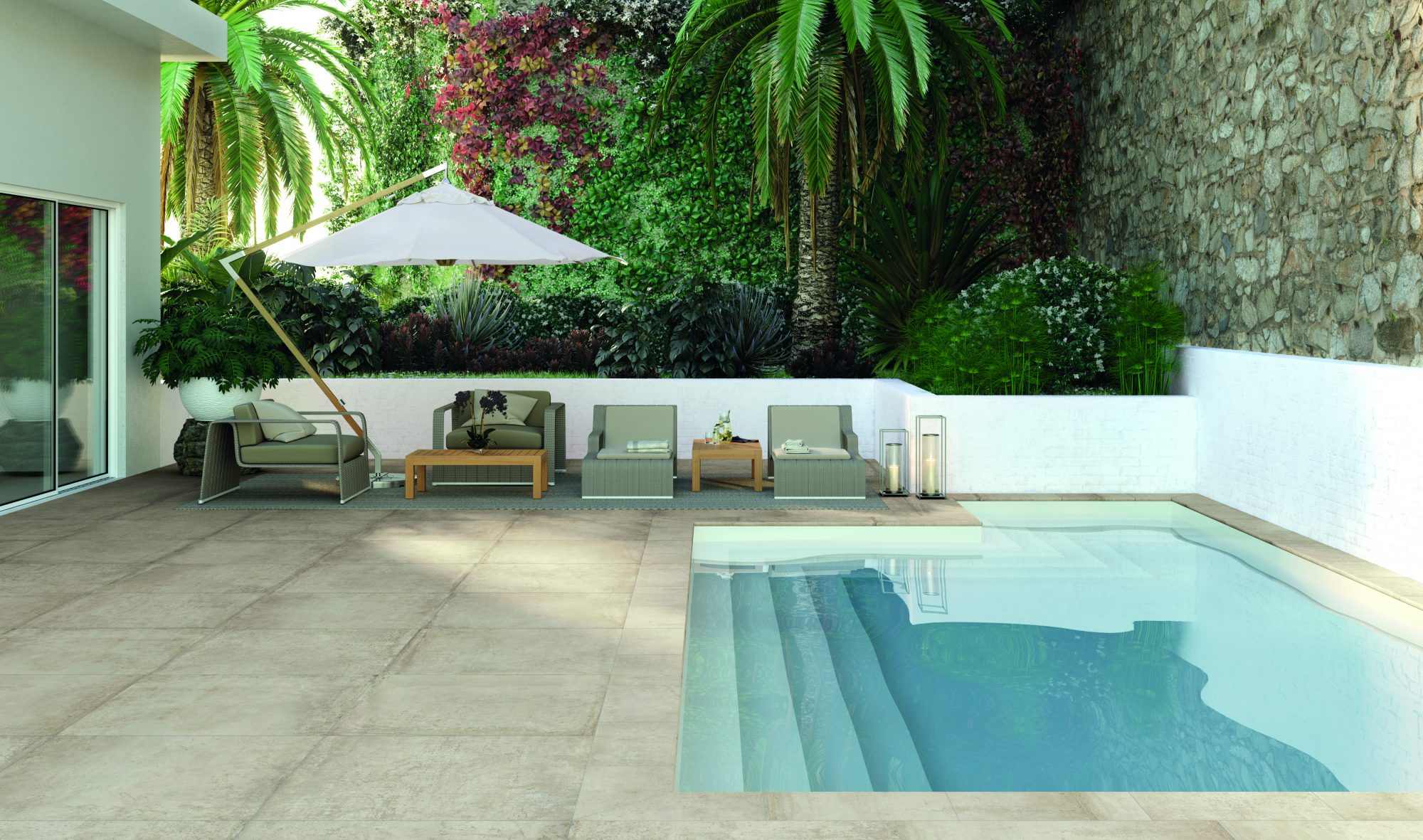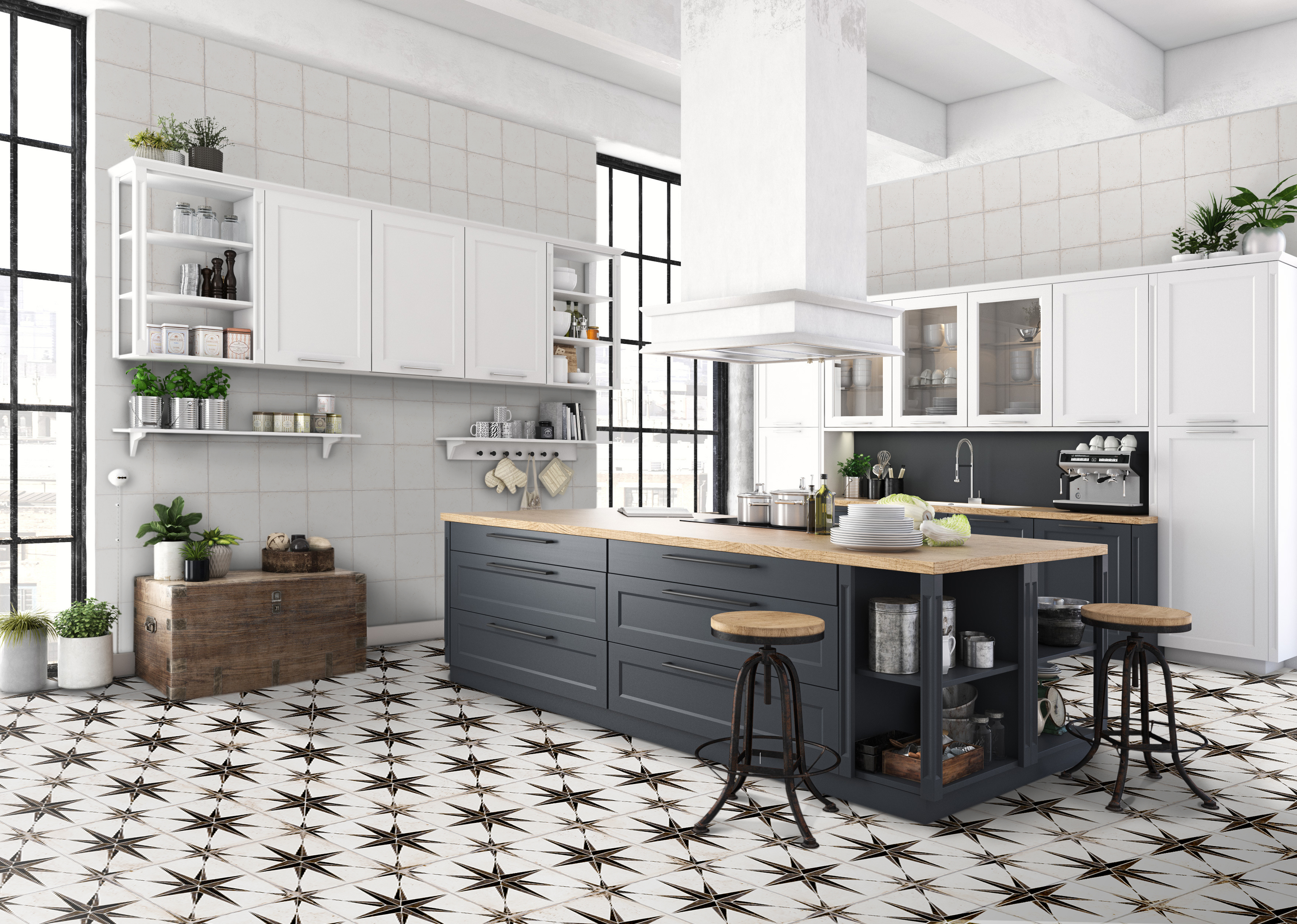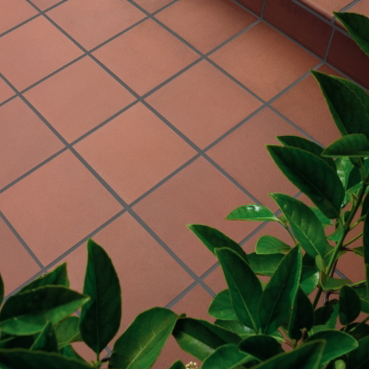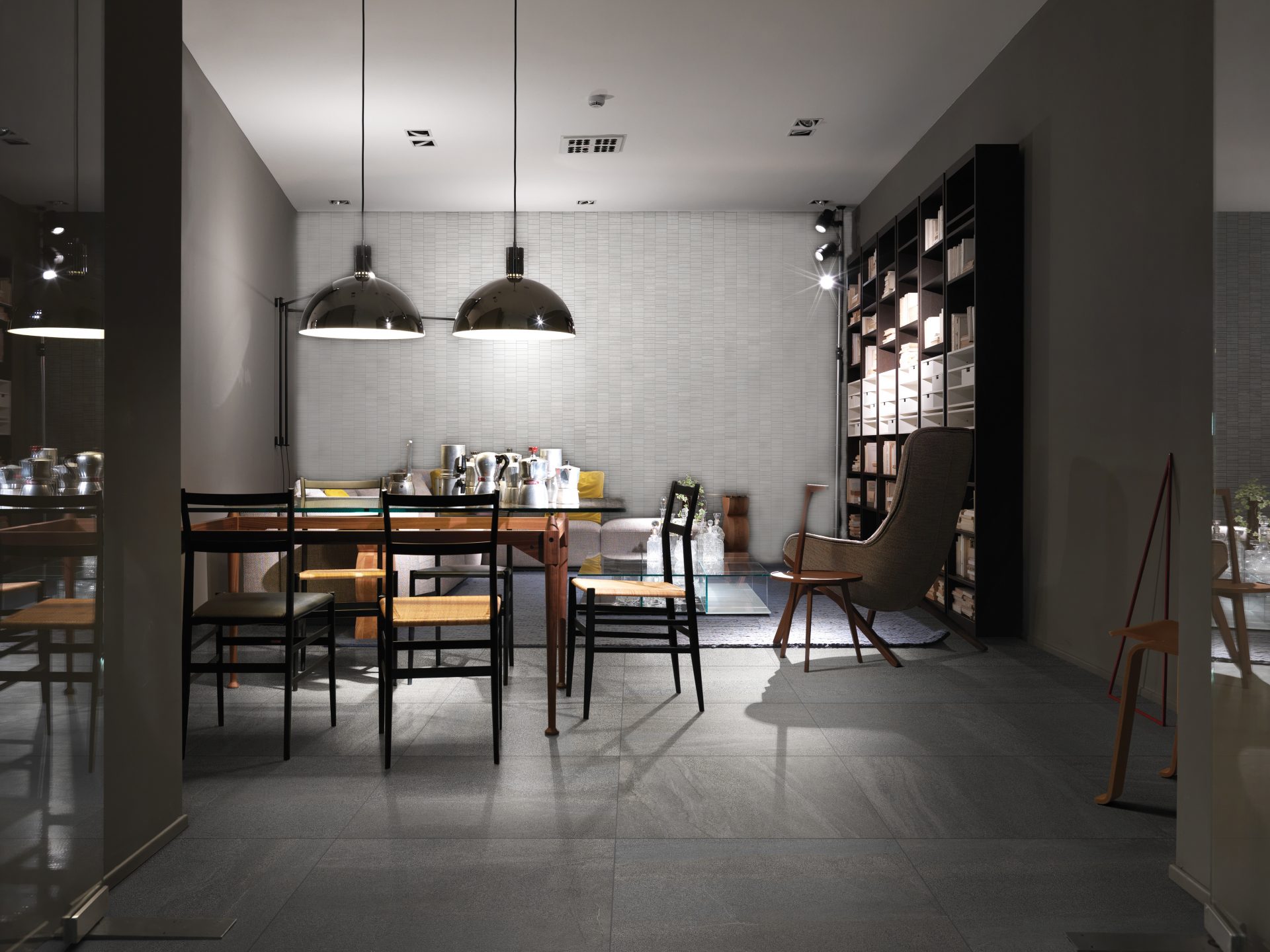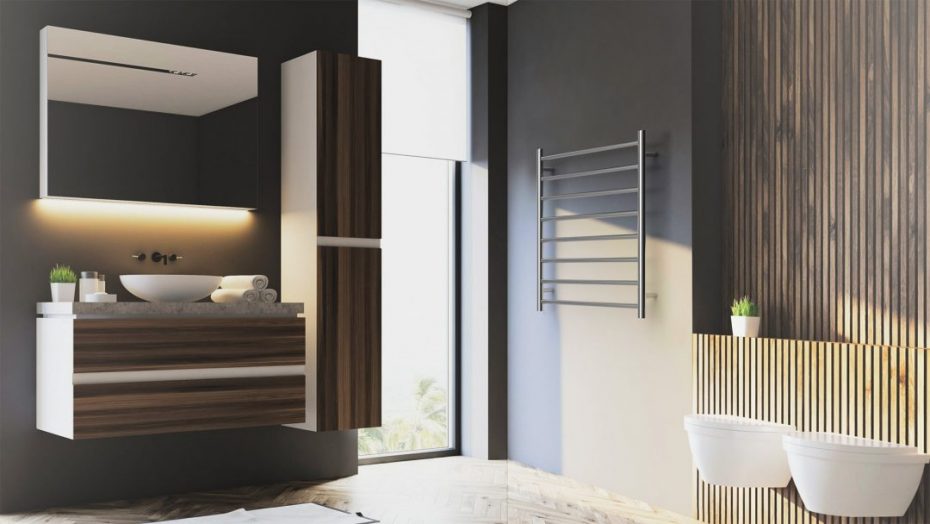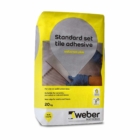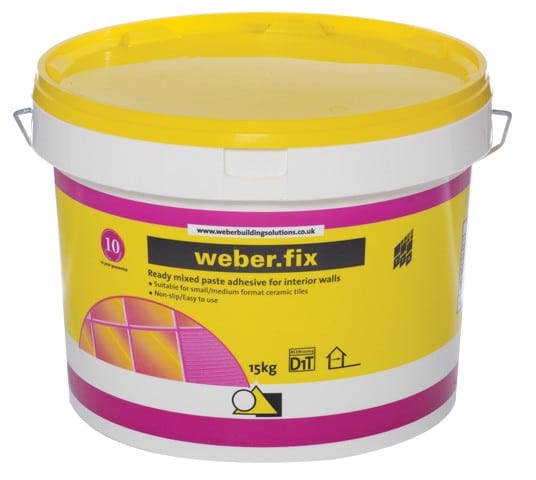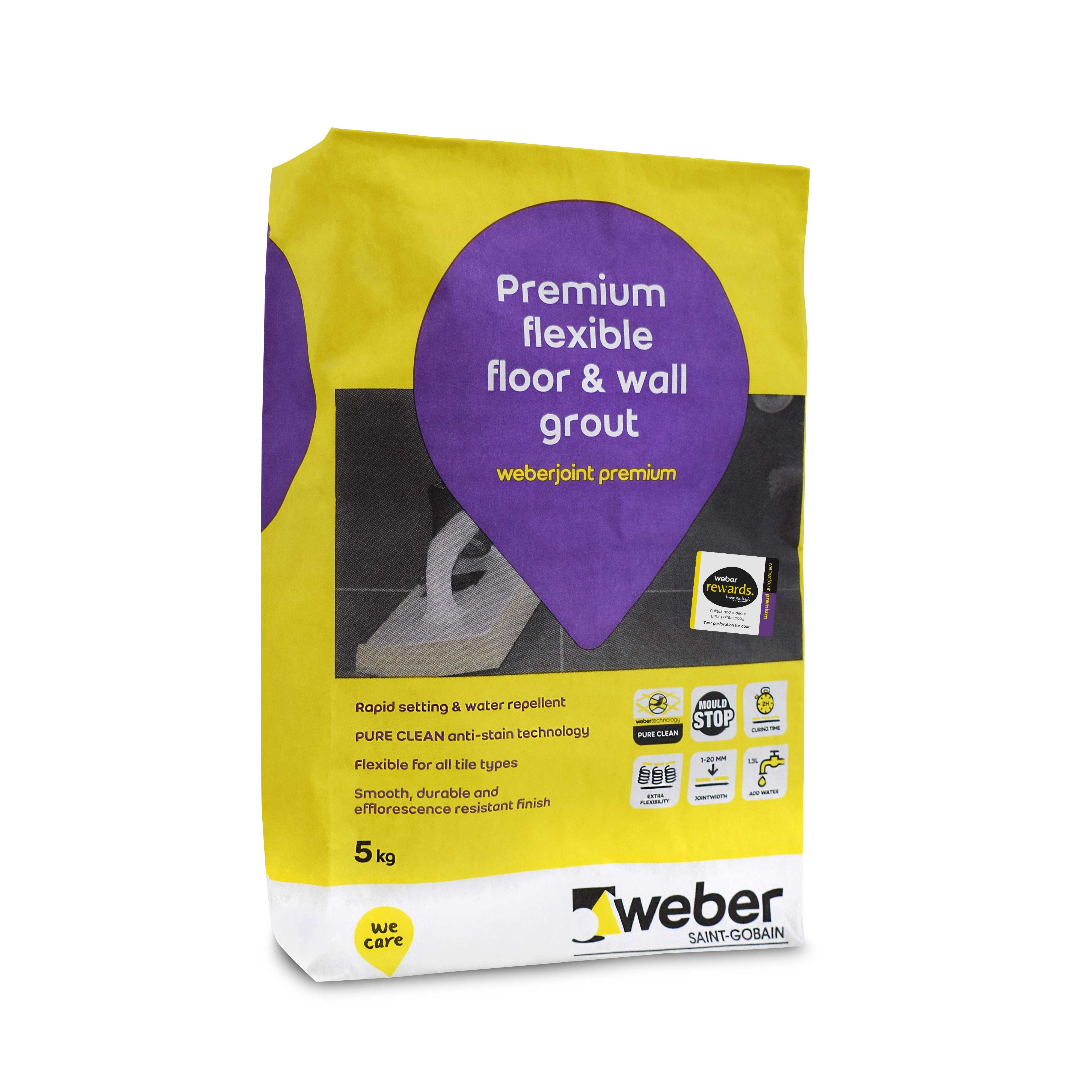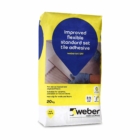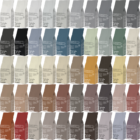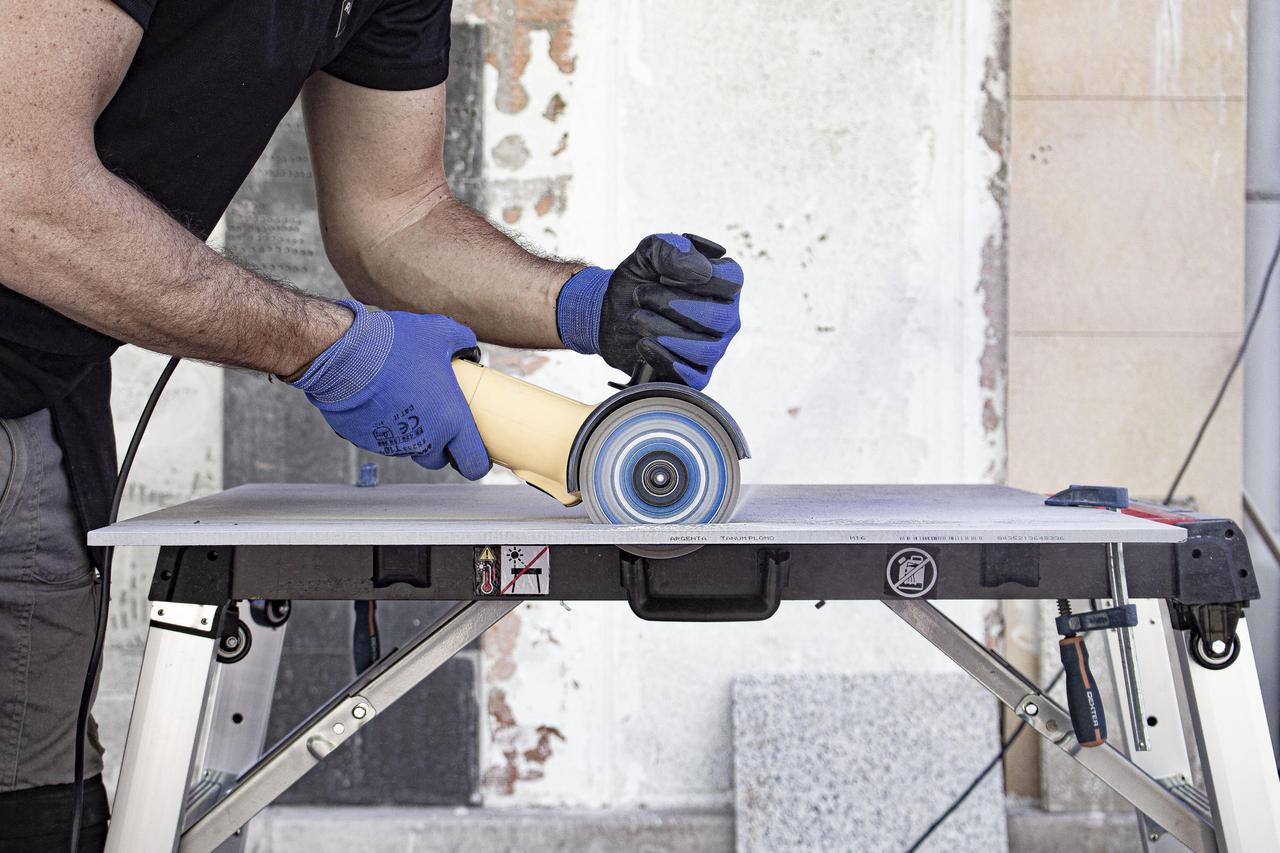Herringbone Bathroom Tile Ideas – 21 ways to work the statement tile trend
There’s no doubt that the right tiles can have a transformative effect on any room. If you’ve set your heart on rectangular tiles, you’ve made an excellent choice. One of the most diverse tiles in terms of colour, texture and size, versatile rectangular tiles also have the most options when it comes to layout.
The classic herringbone tile layout is created when rectangular tiles are laid at 90-degree angles to each other. The symmetrical herringbone pattern dates back to Roman times when roads were laid with interlocking paving stones. The herringbone pattern is also commonly seen in textiles, particularly in tailoring.
Most herringbone tile patterns are created using the ever-popular metro or subway tiles, but you can create the pattern with any sized rectangular tiles. Keep reading to discover creative colourways and terrific twists on the standard herringbone tile layout.
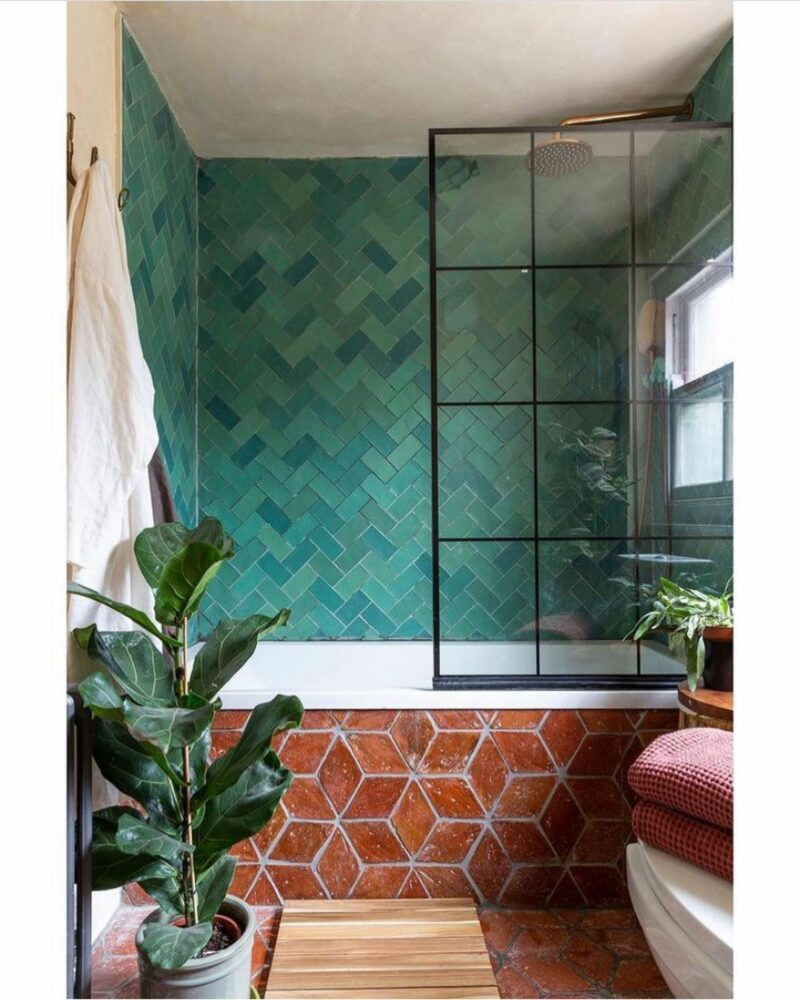
How can I create a herringbone tile pattern?
If you’re after a completely symmetrical look, then you’ll need to find the centre point of the wall and tile outwards from there. The first tile needs to be laid at a 45-angle, the rest of the tiles are then laid at 90 degrees to each other. Tip: Use a speed square to help.
There are plenty of handy online videos and tutorials to help you through the process, or you can ask an experienced tiler to do the job for you.
Herringbone bathroom tile ideas
Laying tiles in a herringbone pattern can completely change the look of the humble rectangular tile. Here’s our pick of the most attractive and imaginative herringbone tile ideas to inspire you.
Wood-look floor tiles
One of the hottest interior trends, wooden herringbone floors are a classic choice and they look equally impressive in a modern or traditional setting.
Inspired by traditional wooden parquet floors, wood-effect porcelain tiles are a practical and realistic-looking choice for a bathroom. Many wood effect tiles are textured and some even have anti-bacterial and air-purifying properties. You can also choose from a wide range of wood-effect finishes.
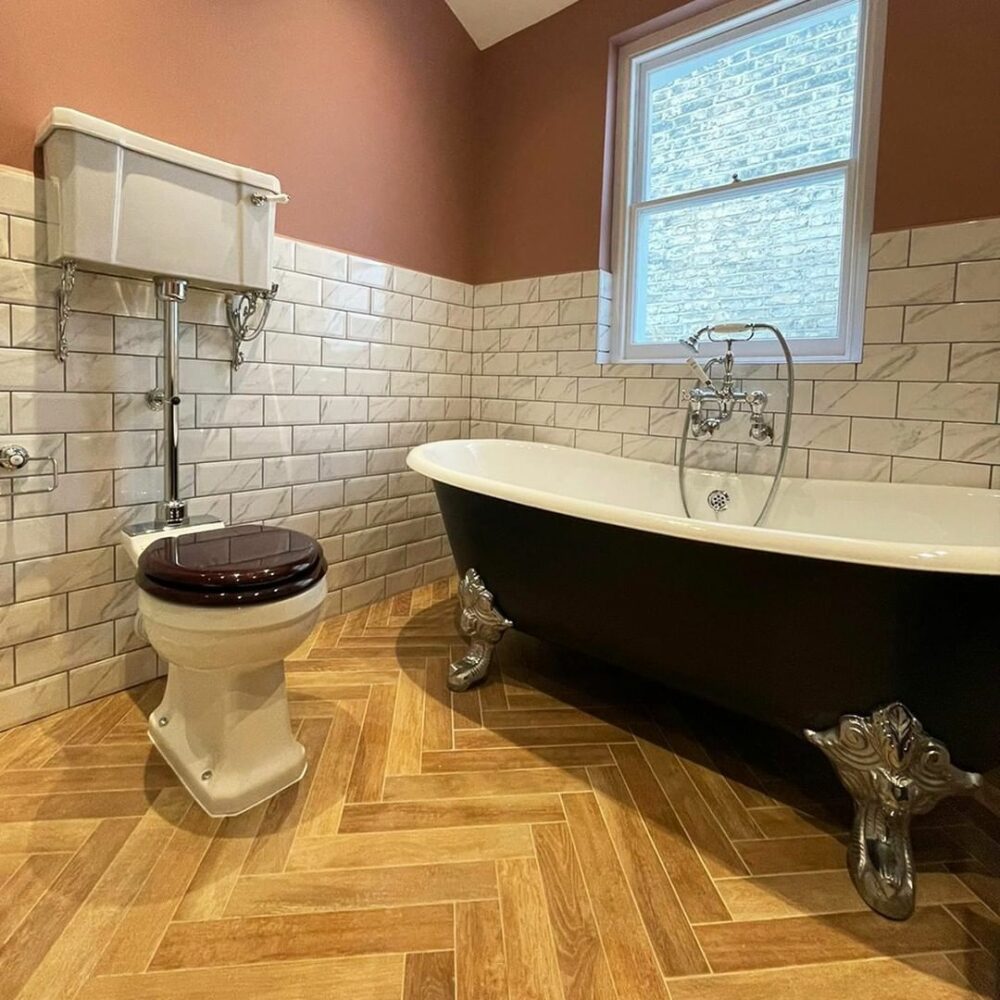
Recommended Tile: Wildwood Oak
Simple white floor tiles
Simple, practical and neutral, white floors are a popular choice for bathrooms. If you don’t fancy standard large-format tiles, add some serious style with herringbone subway tiles.
Black grout is a practical option for floor tiles as it hides a multitude of stains and also creates a beautiful contrast.
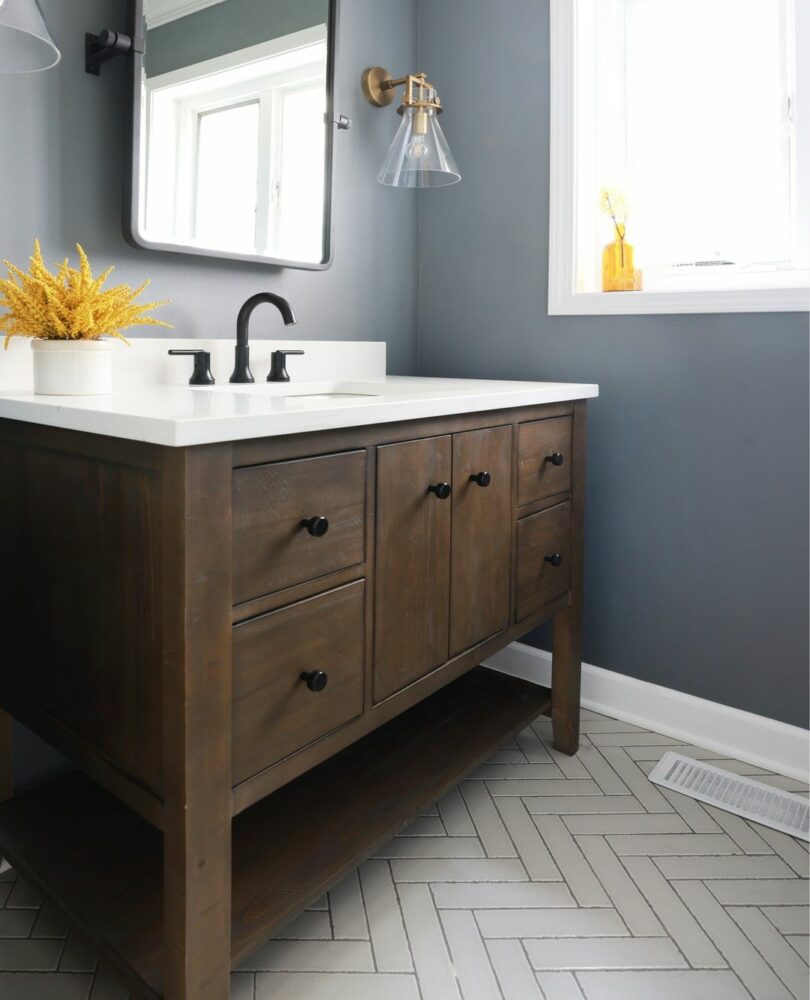
Recommended Tile: San Vincenzo
Glossy green floor tiles
If you fancy fitting a floor with a difference, why not go for a high-gloss green tiled floor? Green tiles are perfect for adding a fresh feel to a room and you can pair them with contrasting wall tiles to up the wow factor.
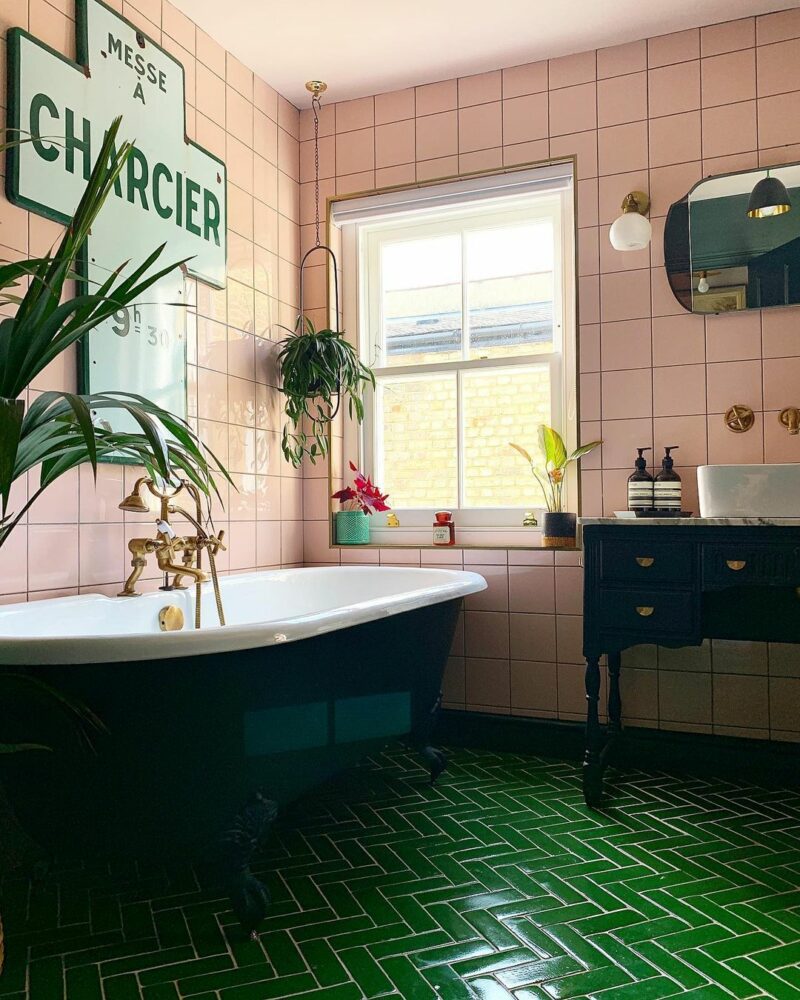
Shades of blue
The colour of the ocean and the sky, blue tiles are a popular choice for bathrooms. Have some fun with your blue wall or floor tiles and mix a few different shades together. You can create a structured or more random pattern and if you’re feeling brave, introduce some contrasting colours too.
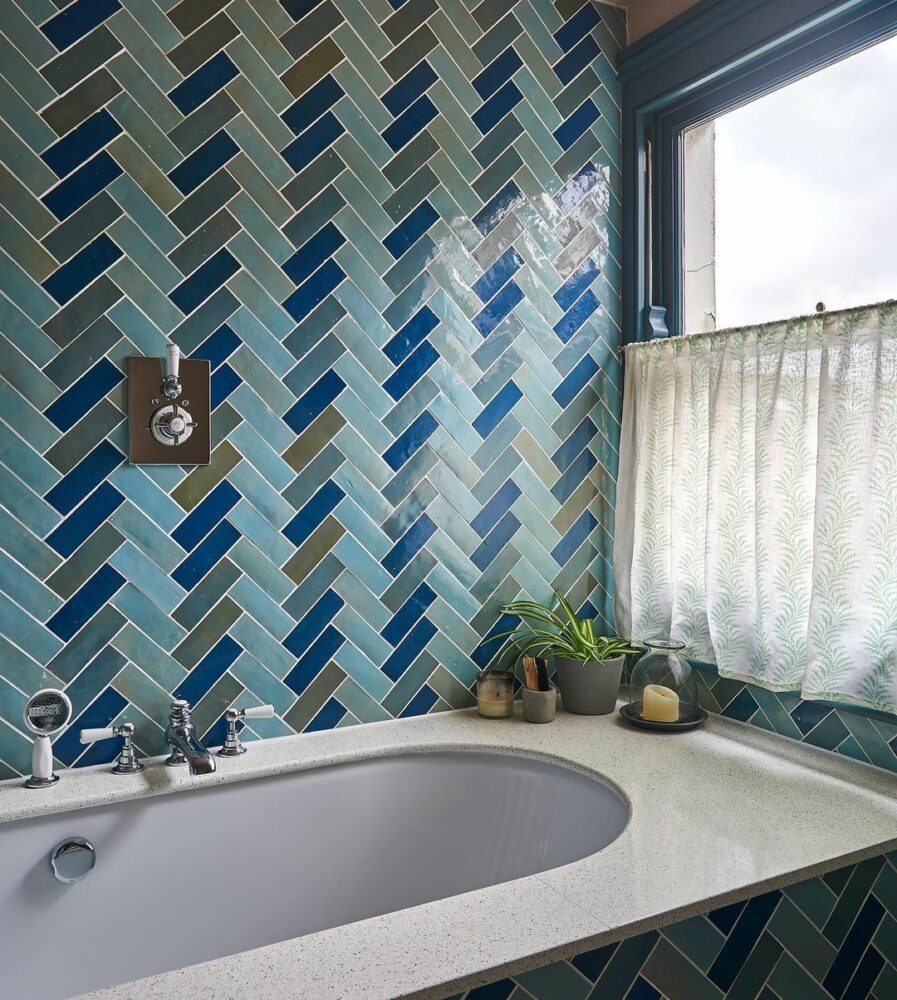
Recommended Tile: Rio Cielo
Bottle green tiles
Add a dramatic feel to your bathroom with a wall of deep green tiles. It’s a great look if you have a more traditional home and an effective way to add character to a bland bathroom.
High-gloss tiles may seem high-maintenance, but they’re really easy to keep clean with a regular wipe-over. They’re a good choice for smaller rooms too as the tile sheen helps to reflect light around the room.
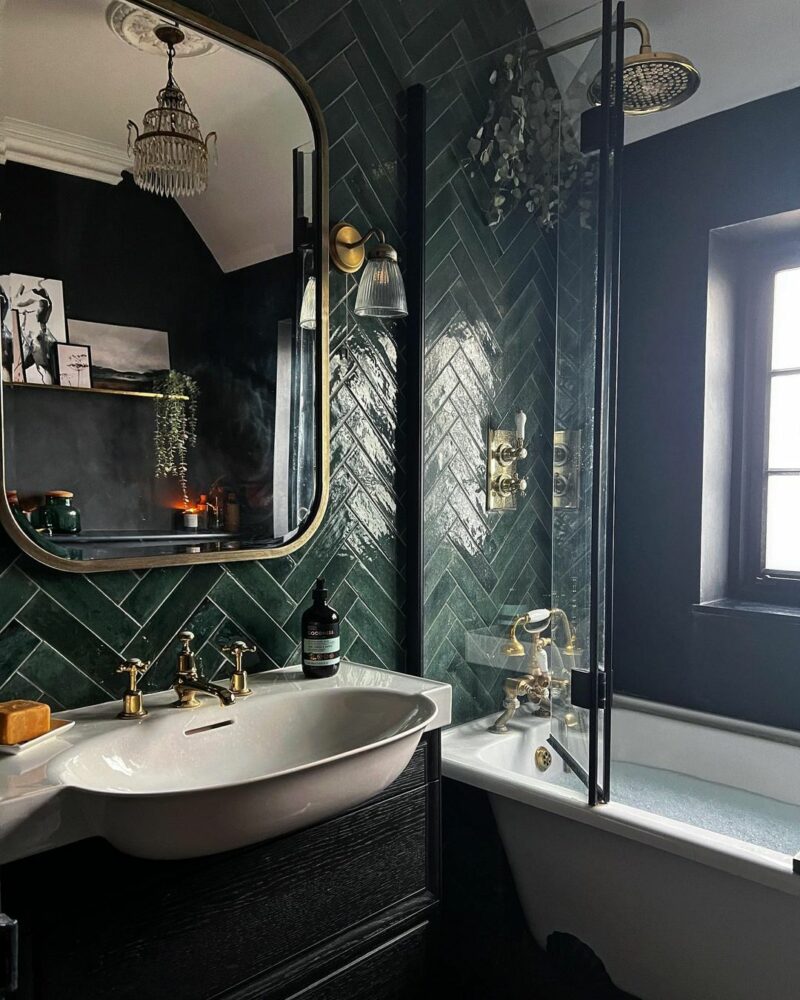
Recommended Tile: Rio Verde
Pure white textured tiles
There is always a place for crisp white tiles. Timeless and elegant, they suit every style of home and, if you’re prone to changing your mind, you’re very unlikely to go off them. You can add character and interest by choosing textured tiles.
These beautiful zellige-style tiles are designed to be laid close together to emphasise the irregular tile texture.
Rustic tiles
Add a rustic touch to your bathroom with earthy, terracotta-style tiles. Just as wallpaper can transform a room, tiles with an interesting surface pattern are perfect for adding depth and interest to walls.
This striking herringbone pattern has been laid at a 90-degree angle for a twist on the more standard herringbone lay.
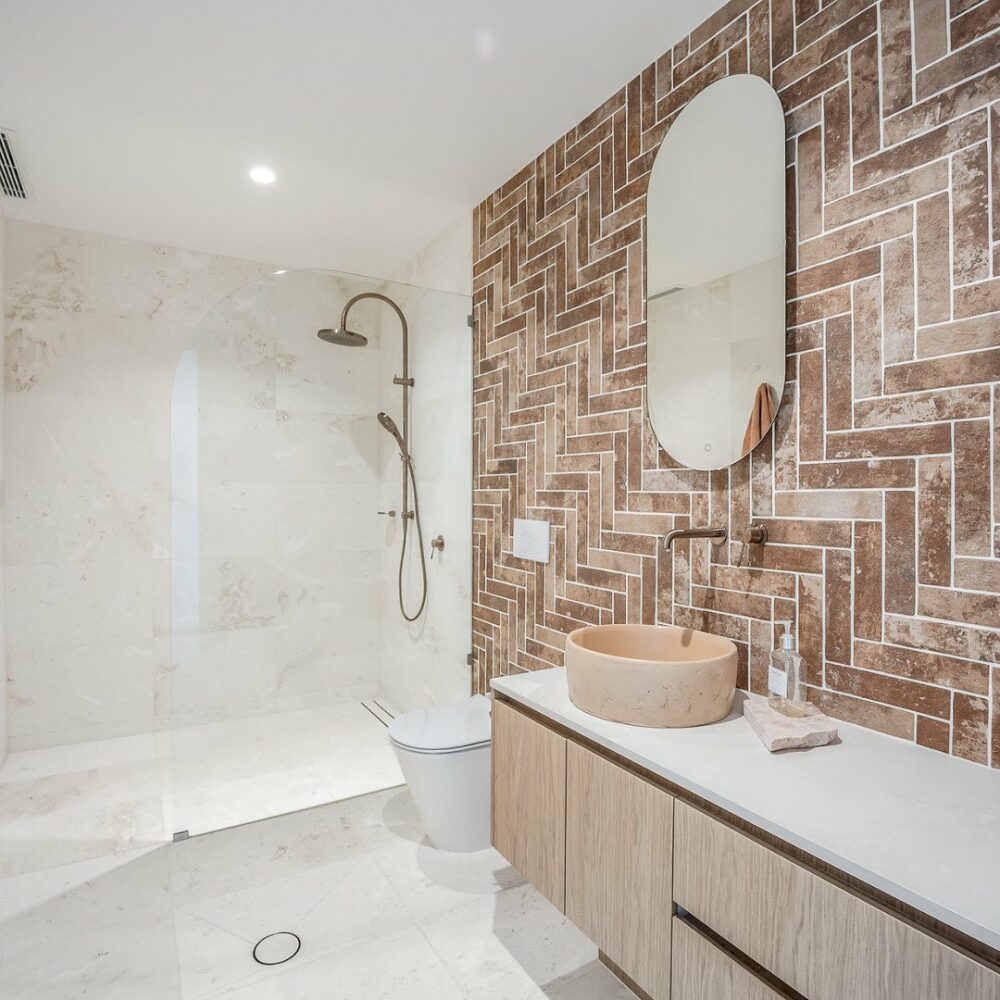
Bold black and white tiles
If you’re looking to add a feature wall to your bathroom, it’s worth considering using two or three different coloured tiles. Black and white is one of the most attractive and timeless combinations but you can achieve equally impressive results with jewel brights or earthy neutrals.
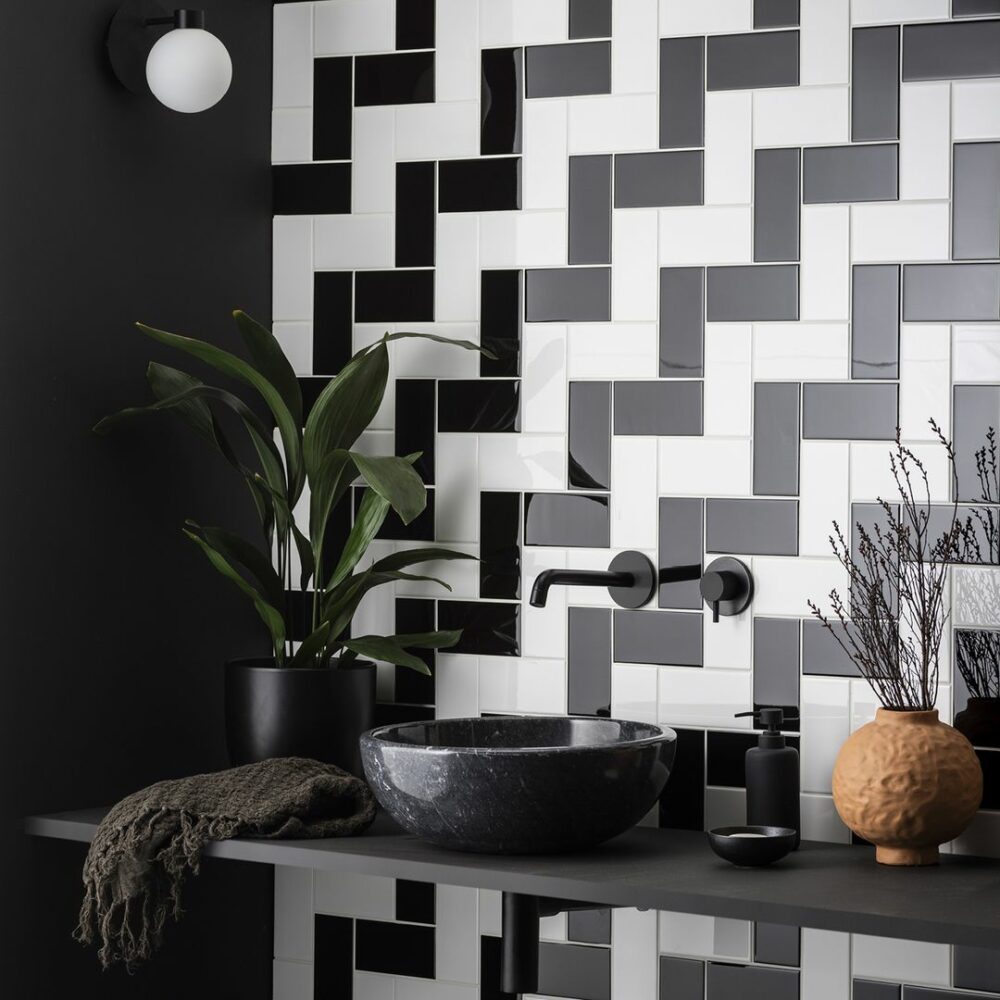
Glamorous gold tiles
Add a touch of luxury to a bathroom with a wall of beautiful gold glass tiles. Gold is a surprisingly versatile colour that will go beautifully with white, black, blue, green and even pink.
Glass tiles provide a highly reflective surface and are perfect for pepping up rooms which don’t receive much natural light.
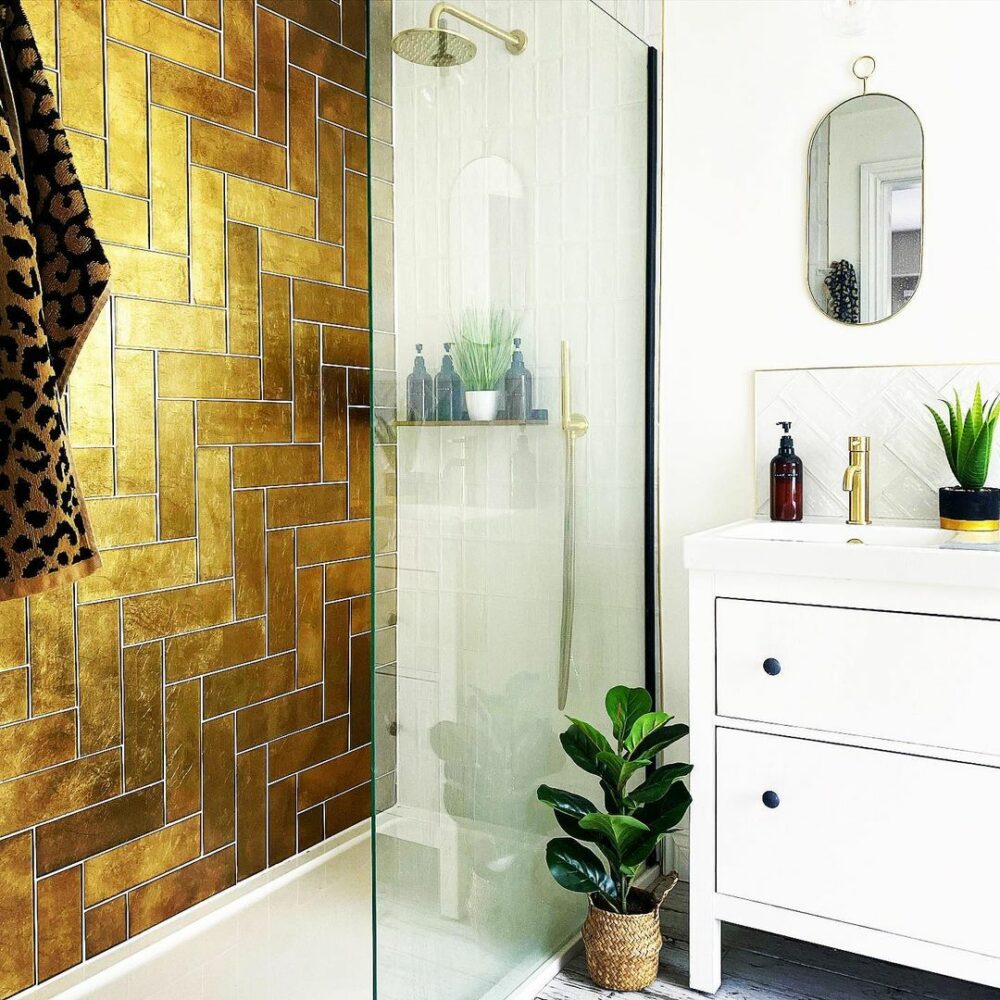
Gorgeous grey tiles
Grey is one of the most popular neutral shades for bathroom tiles. It’s easy on the eye, sophisticated and extremely versatile, so you can match it with almost any other colour.
Add life to glossy, grey subway tiles by laying them in a perfect herringbone pattern and using brilliant white grout to add contrast.
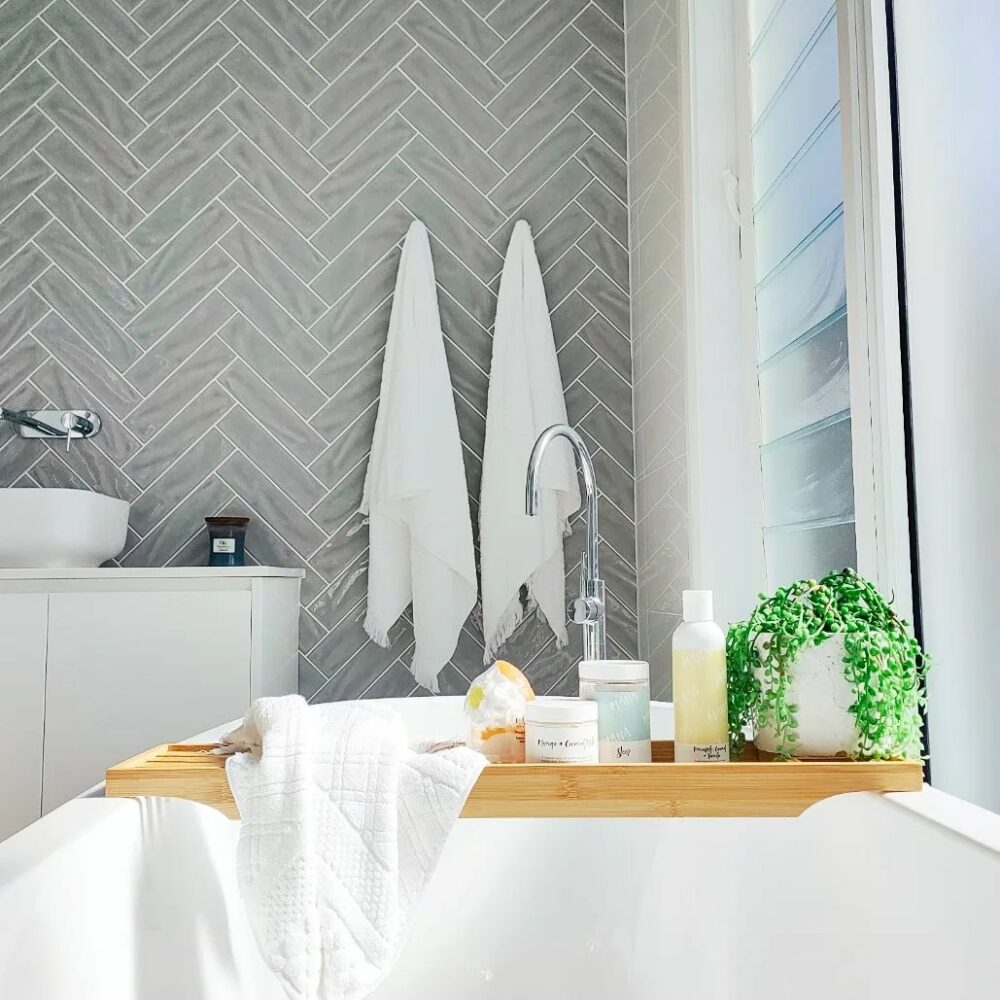
Gloss and matt tiles
Whatever rectangular tiles you’ve chosen for your bathroom, you can guarantee that they will look pretty spectacular when laid in a herringbone pattern. If you want to take your wall design up a notch, consider mixing tile different finishes.
Glossy and matt tiles make a striking and unusual combination. Match them with crisp white sanitary wear and gold brassware for the ultimate luxe look.
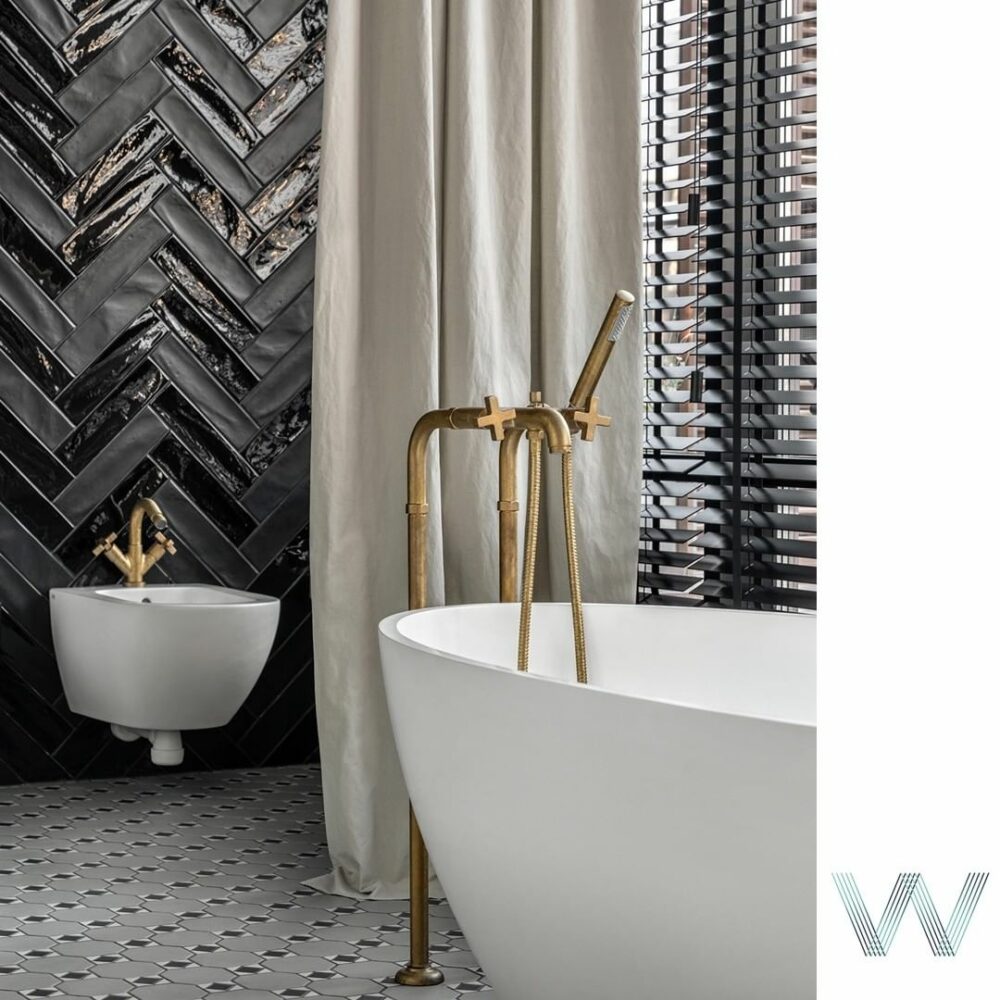
Miniature mosaic tiles
Mosaic tiles are perfect for adding interest to specific areas of a bathroom, and they can also look incredible when used on a larger scale. Mosaic tiles can be tricky to fit, but most styles come on sheets to make installation much easier (great news when it comes to laying small tiles in an intricate pattern!)
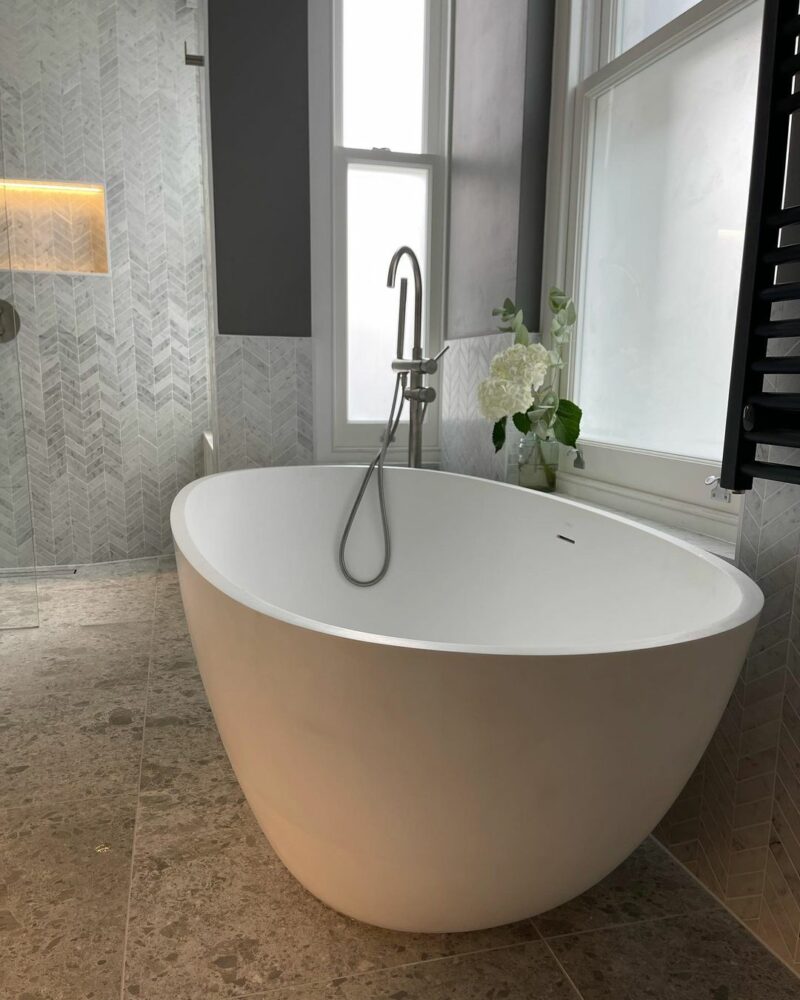
Green tiles with a border
Wondering how to make a wall of herringbone tiles look even more striking? Try fitting a row or two of border tiles for a classic look. You can use the same tile, try a different colour or use moulded borders for a flawless finish.
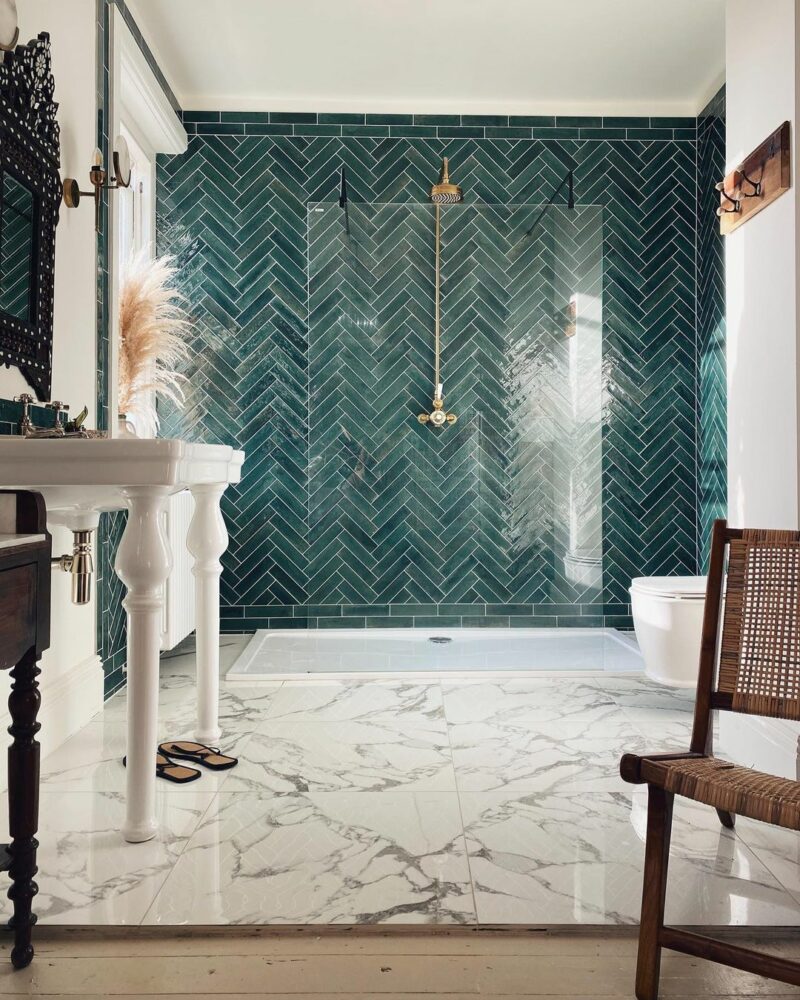
Different coloured wall and floor tiles
If you can’t get enough of the chic herringbone pattern, it’s perfectly fine to use the design on your bathroom walls and floors.
You can effectively combine different tile styles, colours and even tile sizes. Tip: Install tile upstands instead of wooden skirting for an impeccable and maintenance-free finish.

Luxurious marble tiles
Marble is one of the most elegant choices when it comes to bathroom tile materials. It’s wonderfully timeless so you know you’ll still be loving it in 20 years. We often think of marble tiles as large slabs, but you can get most tile styles in this beautiful, natural material, including the ever-popular subway tile.
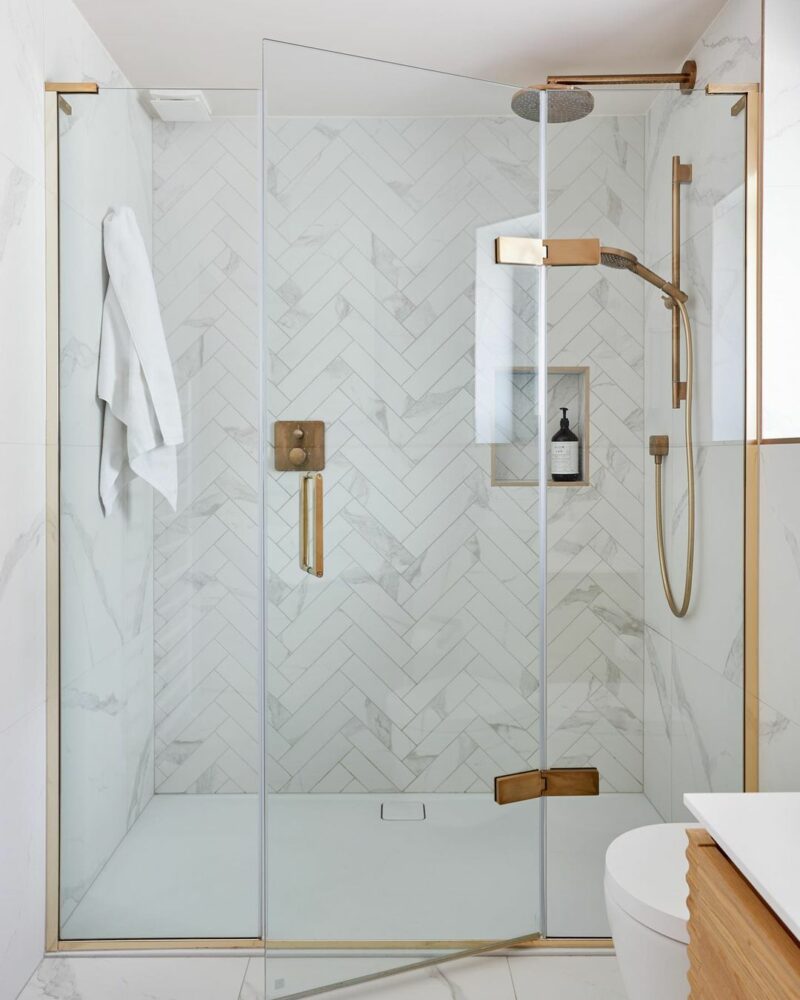
Pink tiles, black grout
Pink tiles are an excellent choice for a bathroom, it’s a warm and welcoming colour and a perfect choice if you want your tiles to make a real impact.
The colour of grout that you choose for your tiles can make a big difference to the overall finish. Opt for dark-coloured grout if you love the contrast it brings. Black or dark grey grout is ideal for adding a more striking, vintage-style look.

White tiles, black grout
Few colour combinations are as classic or striking as black and white. A wall of white tiles can be completely transformed depending on the colour of grout that you choose.
Tip: Although black and white is one of the most amazing colour combinations, be warned that black grout will highlight any tiling imperfections. Make sure your tiling is on point if you’re opting for contrasting grout.
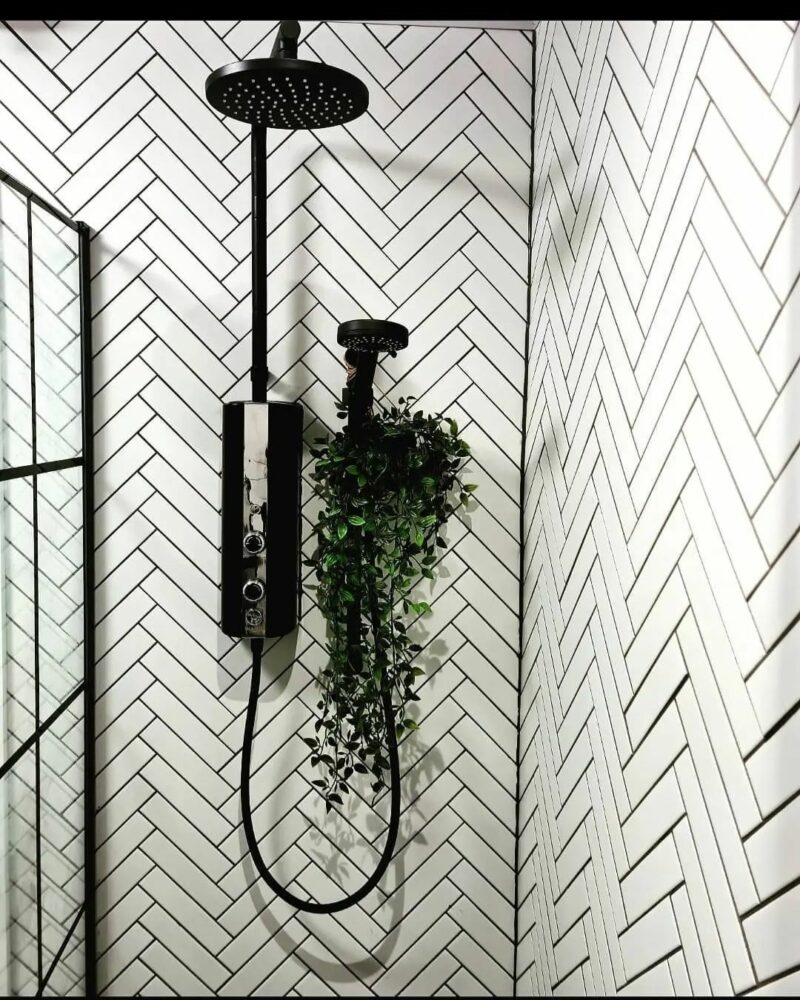
Vertical herringbone tiles
Add a twist to a herringbone tile pattern by opting for a vertical herringbone lay. Vertical tile layouts are a good way to make the room appear taller, so can be a good option in loft conversions or older properties.
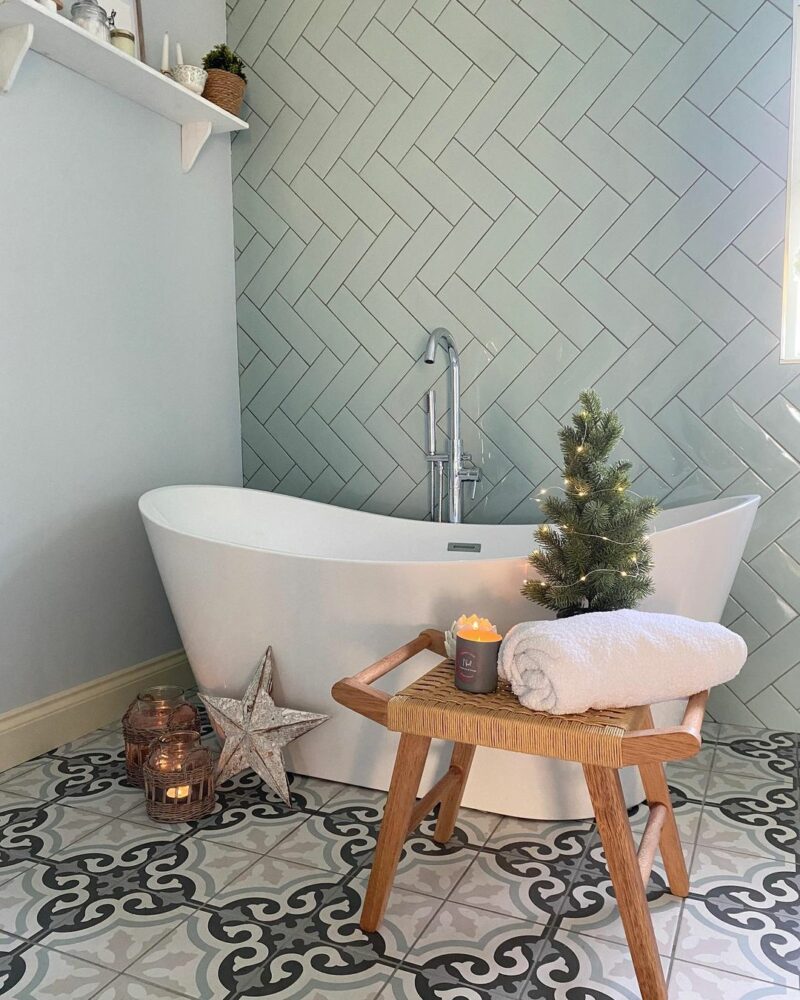
Double herringbone tiles
As beautiful as the standard herringbone tile pattern is, you can have twice the impact with the attractive double herringbone pattern.
The double pattern is achieved by two tiles being laid at the same angle, one on top of the other, which is then repeated throughout the design.
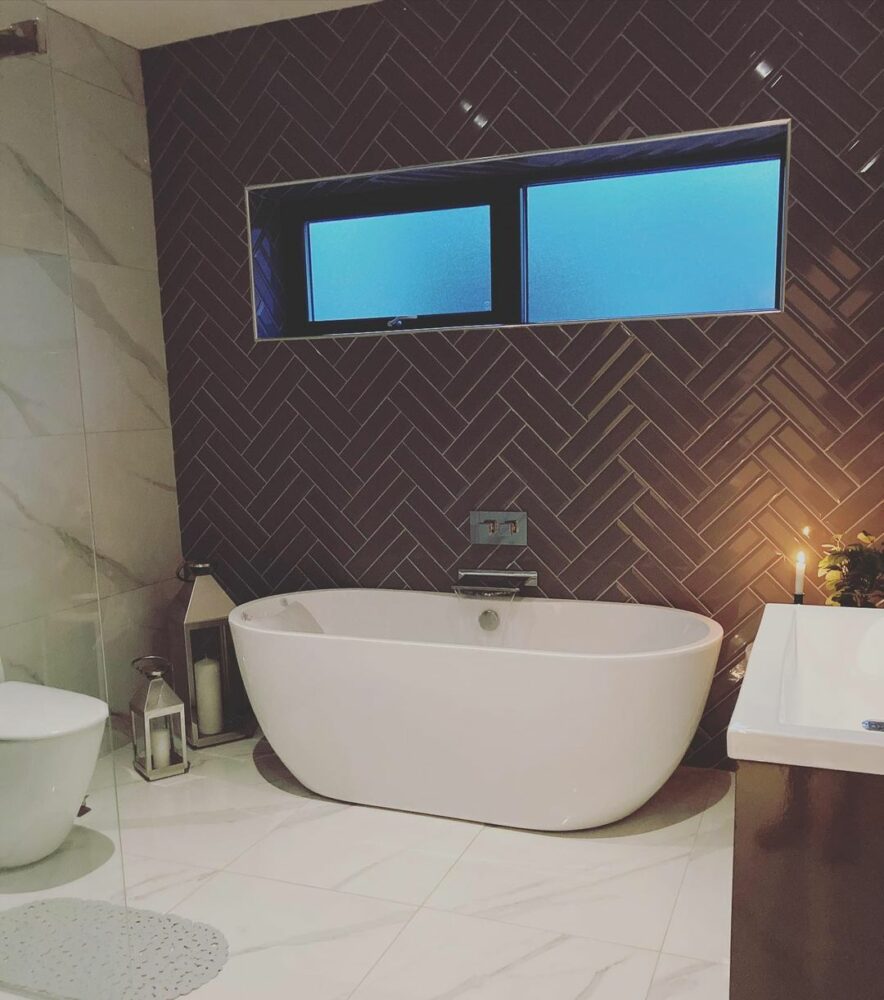
Herringbone splashback tiles
If you’re looking to update a cloakroom or just give a bathroom a quick makeover, a herringbone tile splashback is a great place to start. It’s inexpensive, quick to do and, you don’t even need to trim the tiles at the edge!
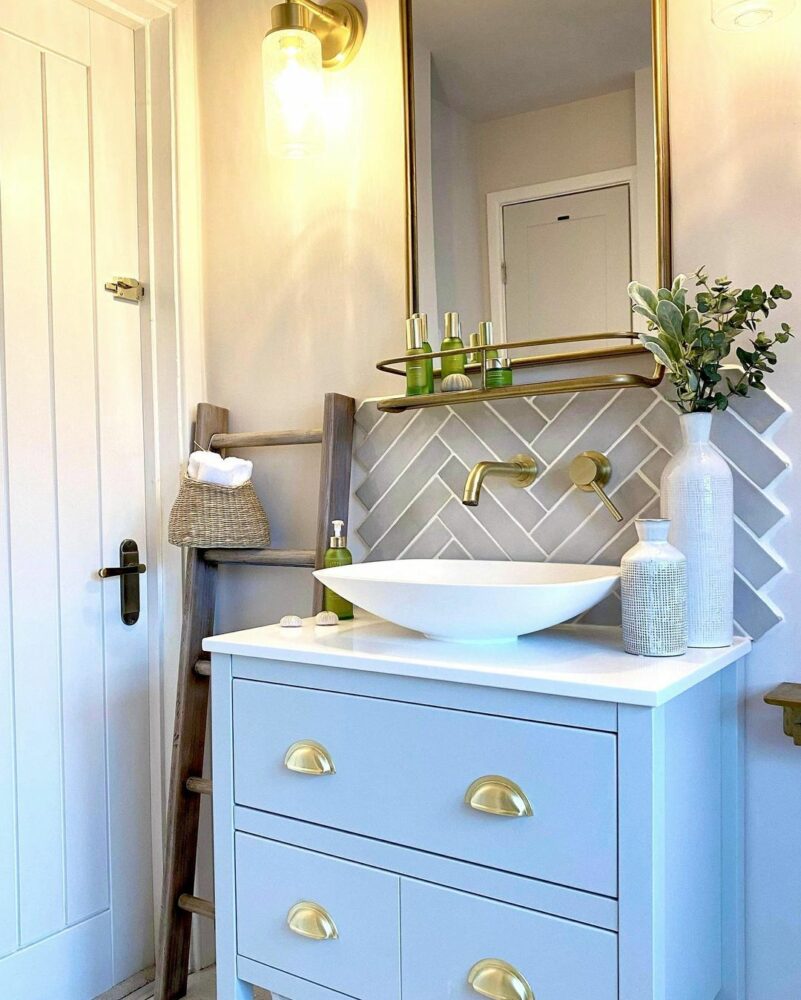
Raw edge herringbone tiles
One big advantage of the herringbone layout is that you can leave the raw, uncut tile edge as part of the design, as opposed to trimming the tile in a straight line and fitting an edging strip or border tile.
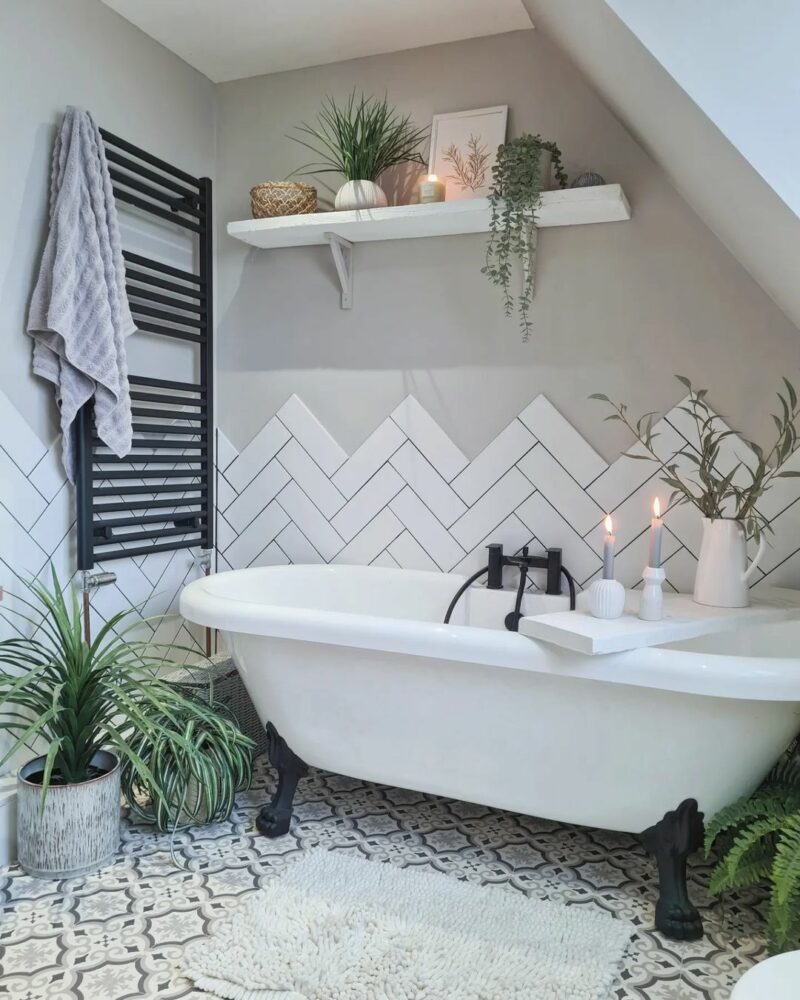
This can look incredible as a splashback, partially tiled wall or the edge of a shower enclosure. You’ll need to ensure that the tile’s edges are neatly grouted to avoid any water getting behind them. The grout can then be left as it is or painted the same colour as the wall.
Herringbone bathroom tile tips
1. The herringbone tile lay is one of the most classic tile designs and it will lift your bathroom walls or floors in a way that few other designs will. You’ll need to use rectangular tiles for this design, but you can choose any sized rectangular tile, from larger format to miniature mosaics.
2. A wall of one-colour herringbone tiles looks fabulous, but you might want to experiment with different tile colours and finishes, for example, matt and gloss.
3. Make sure that the tiles are fitted perfectly, especially if you’re using contrasting grout, as it will be unforgiving of any mistakes. A tape measure, tile spacers, a speed square and levelling clips are your friends!
Atlas Ceramics has a vast range of rectangular tiles to choose from, including metallics, natural stone and porcelain tiles in a wide spectrum of colours and finishes. Browse our selection yourself or call one of our experts for advice.


